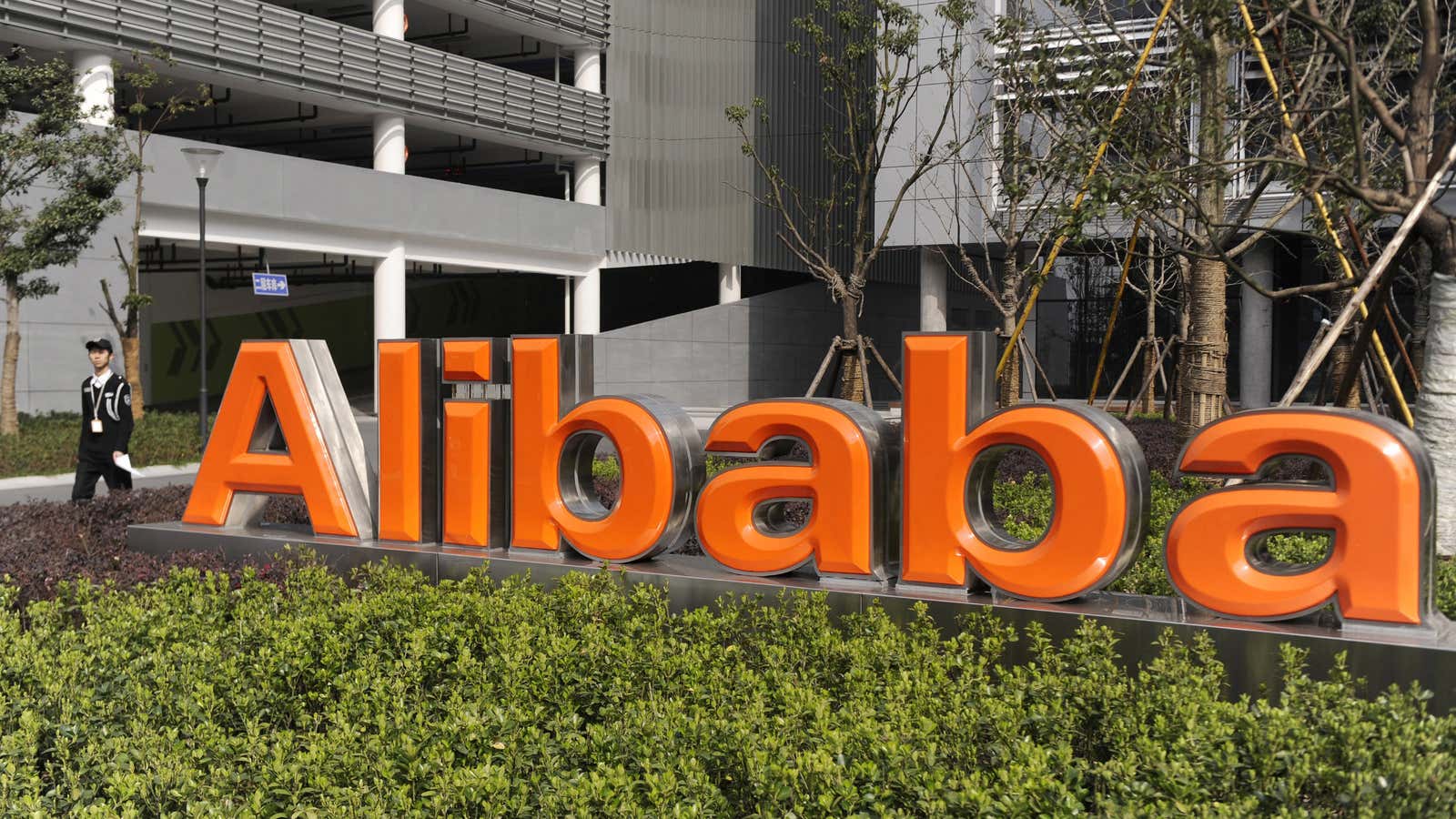This article has been corrected.*
The long run-up to Chinese online commerce giant Alibaba’s blockbuster public offering has been punctuated by numerous updates to the company’s IPO prospectus filed with US regulators, each revealing more detail than the last.
The company’s decision to file in New York, rather than Hong Kong, was based on company leaders’ desire to retain control of the board of directors. US regulators appear to be pushing Alibaba to spell out, in increasingly specific detail, what exactly this control will mean for investors.
In three of the latest filings, the first on July 11, Alibaba has set out a stark warning to potential investors about the motives of the ”Alibaba Partnership,” a powerful 27-member group also known as Lakeside Partners that will nominate a majority of the company’s board of directors.
Under the section marked “Risks related to our corporate structure,” the prospectus warns investors that “the interests of the Alibaba Partnership may conflict with your interests.” The voting rights of the partnership, it says:
… will limit your ability to influence corporate matters, including any matters to be determined by our board of directors. The interests of the Alibaba Partnership may not coincide with your interests, and the Alibaba Partnership or its director nominees may make decisions with which you disagree, including decisions on important topics such as compensation, management succession, acquisition strategy and our business and financial strategy.
In particular, Alibaba says, the partnership may “focus on the long-term interests of our ecosystem participants at the expense of our short-term financial results.” Ecosystem participants are defined in another part of the prospectus as the “buyers, sellers, third-party service providers, strategic alliance partners, and investee companies” involved in Alibaba’s online sales platform.
By giving the partnership, and an elite committee within it, control of the company’s ultimate decision-making body, Alibaba’s top management has created a situation that executives at many publicly traded companies will envy. Although the company’s IPO could raise more than $20 billion in exchange for shares, managers are making it increasingly clear that they will ignore the pressure from investors for short-term returns that dogs so many other CEOs.
This lack of control is unlikely to deter many investors. Alibaba’s second-quarter net income nearly tripled, to $2 billion, the company said yesterday, helped in part by a meteoric rise in mobile revenue. Shareholder Yahoo has made it clear it isn’t going to part with its Alibaba stake unless forced, despite the Alibaba partnership’s ultimate control. As one analyst told Reuters this week, investors are “ready to buy,” whether anyone is going to listen to them or not.
*An earlier version of this article said that Alibaba’s prospectus filed on August 27 was the first to say that the interests of Alibaba’s partnership may conflict with investors’ interests. A prospectus dated July 11 was the first to state this.




